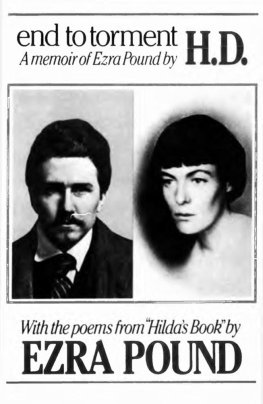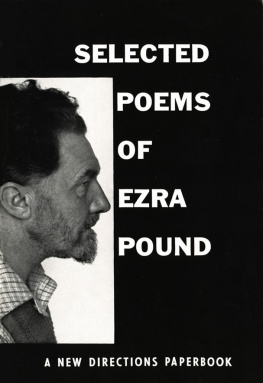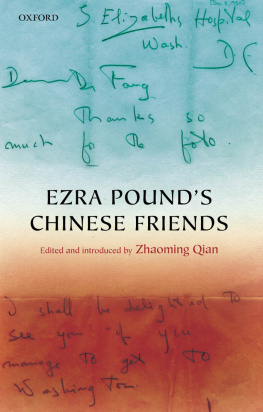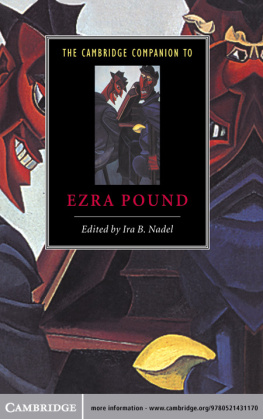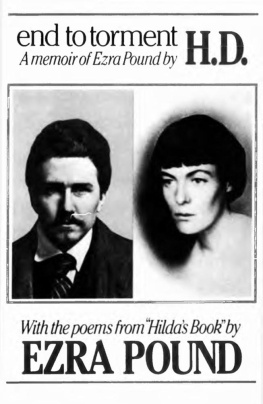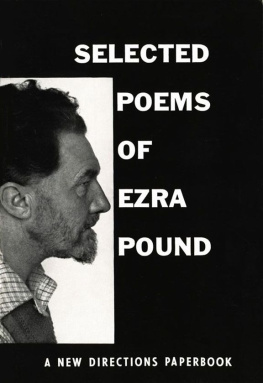EZRA POUND AND GLOBE MAGAZINE
Modernist Archives Series
Series Editors: Matthew Feldman (Teesside University, UK) and Erik Tonning (University of Bergen, Norway)
Editorial Board: Chris Ackerley (University of Otago, New Zealand), Ronald Bush (University of Oxford, UK), Mark Byron (University of Sydney, Australia), Wayne K. Chapman (Clemson University, USA), Miranda Hickman (McGill University, Canada), Gregory Maertz (St Johns University, USA), Alec Marsh (Muhlenberg College, USA), Steven Matthews (Oxford Brookes University, UK), Lois M. Overbeck (Emory University, USA), Dirk Van Hulle (University of Antwerp, Belgium).
From letters, journals, and notebooks to unpublished or out of print works, unfamiliar but important writings in translation and forgotten articles, Bloomsburys Modernist Archives series makes available to researchers at all levels historical archival material that can reconfigure received views of Modernist literature and culture.
Annotated throughout and supported by extensive contextual essays by leading scholars, the Modernist Archives series is an essential resource for anyone with a serious interest in 20th Century Literature and Culture.
Forthcoming titles
W.B. Yeatss Robartes-Aherne Writings
Wayne K. Chapman
The Correspondence of Ezra Pound and the Frobenius Institute, 19301959
Edited by Ronald Bush and Erik Tonning
Global Modernists on Modernism
Edited by Alys Moody and Stephen J. Ross
EZRA POUND AND GLOBE MAGAZINE: THE COMPLETE CORRESPONDENCE
Edited by Michael Thomas Davis and Cameron McWhirter
Bloomsbury Academic
An imprint of Bloomsbury Publishing Plc

Bloomsbury Academic
An imprint of Bloomsbury Publishing Plc
50 Bedford Square | 1385 Broadway |
London | New York |
WC1B 3DP | NY 10018 |
UK | USA |
www.bloomsbury.com
BLOOMSBURY and the Diana logo are trademarks of Bloomsbury Publishing Plc
First published 2016
Michael T. Davis, Cameron McWhirter and the Estate of Ezra Pound, 2016
All rights reserved. No part of this publication may be reproduced or transmitted in any form or by any means, electronic or mechanical, including photocopying, recording, or any information storage or retrieval system, without prior permission in writing from the publishers.
No responsibility for loss caused to any individual or organization acting on or refraining from action as a result of the material in this publication can be accepted by Bloomsbury or the author.
British Library Cataloguing-in-Publication Data
A catalogue record for this book is available from the British Library.
ISBN: | HB: | 978-1-4725-8959-0 |
ePDF: | 978-1-4725-8961-3 |
ePub: | 978-1-4725-8960-6 |
Library of Congress Cataloging-in-Publication Data
A catalog record for this book is available from the Library of Congress.
Series: Modernist Archives
Typeset by Fakenham Prepress Solutions, Fakenham, Norfolk NR21 8NN
In Memory of James Taylor Dunn and Omar Shakespear Pound
CONTENTS
Archival excavation and thick contextualization is becoming increasingly central to scholarship on literary Modernism. Over the past generation the dissemination and increased accessibility of previously unpublished or little-known documents and texts has led to paradigm shifting scholarly interventions on a range of individual authors (Pound, Eliot, Joyce, Beckett, Woolf, inter alia), neglected topics (the occult, primitivism, fascism, eugenics, modernist publishing, the writing process), and critical methodologies (genetic criticism, intertextuality, book and source history). This trend will only increase as large-scale digitization of various archives gathers pace, and existing copyright restrictions gradually lapse. Modernist Archives is a new book series that will channel, extend, and interrogate this trend by publishing hitherto unavailable or neglected primary materials for a wider readership. Each volume also provides supporting, contextualizing work by scholars, alongside a critical apparatus of notes and references.
The impetus for this new series emerges from the editors well-established series Historicizing Modernism. The focus there is analytical, and here reproductive. The monographs and edited collections in that series have revealed the extent to which contemporary scholars are increasingly turning toward archival and/or unpublished materials in order to reconfigure academic understandings of Modernism, their working contexts, and broader historical rootedness, as well as authorial methodologies. Intrinsic to the diverse range of cutting-edge projects this successful series has presented is a shared interpretative approach: the use of an empirical methodology, engaging explicitly with unpublished materials and contextualizing these materials in relation to published writings and subsequent criticism vis--vis a given Modernist author or topic.
Understanding and defining primary sources as a broad category that includes letters, diaries, notes, drafts, marginalia, or other archival deposits of a contextualizing nature, the Modernist Archives series will produce volumes that not only unearth significant unpublished materials and provide fresh scholarship on them, but also develop cutting-edge editorial presentation-techniques that preserve as much information as possible in an economical and accessible way. Also worth noting is the potential in moving beyond single-author studies to the dissemination of archives surrounding the relations of literary Modernism to other media (radio, television), or important cultural events or debates. The series thus seeks to be an enabling force within Modernist scholarship, encouraging work that might otherwise not easily find a home.
It is becoming ever more difficult to read this extraordinary period of literary experimentation in isolation from contextualizing archival materials, sometimes dubbed the grey canon of Modernist writing. The difficulty, we suggest, is something like a loss of innocence: once obviously relevant materials are actually accessible, they cannot be ignored. They may challenge received ideas about the limits or definition of Modernism; they may upend theoretical frameworks, or encourage fresh theoretical reflection; they may require new methodologies; they may textualize the self, or revise the very notion of authorship; they may require types of knowledge that we never knew we needed but there they are. Modernist Archives in no way seeks to prejudice the results or approaches that scholars in this area will produce in the exciting times ahead for this burgeoning field. By commissioning a wide range of innovative and challenging editions, this series aims to once again make strange and make new our fundamental ideas about Modernism.
This book took a long time to reach publication and it would not have done so without the unflagging help of many people. First and foremost are the late Omar Pound and the late James Dunn, who for years actively promoted and aided this project. Both men lived Pounds maxim sent in a letter to Dunn on February 13, 1938: waaal itza gt/life if you dont weaken. They brought energy, enthusiasm, and expertise to this project. The Globe letters to Pound appear with the permission of the late James Taylor Dunn. An earlier version of this introduction appeared in EZRA POUND AND EDUCATION 2012 National Poetry Foundation, reprinted with permission.
Next page


